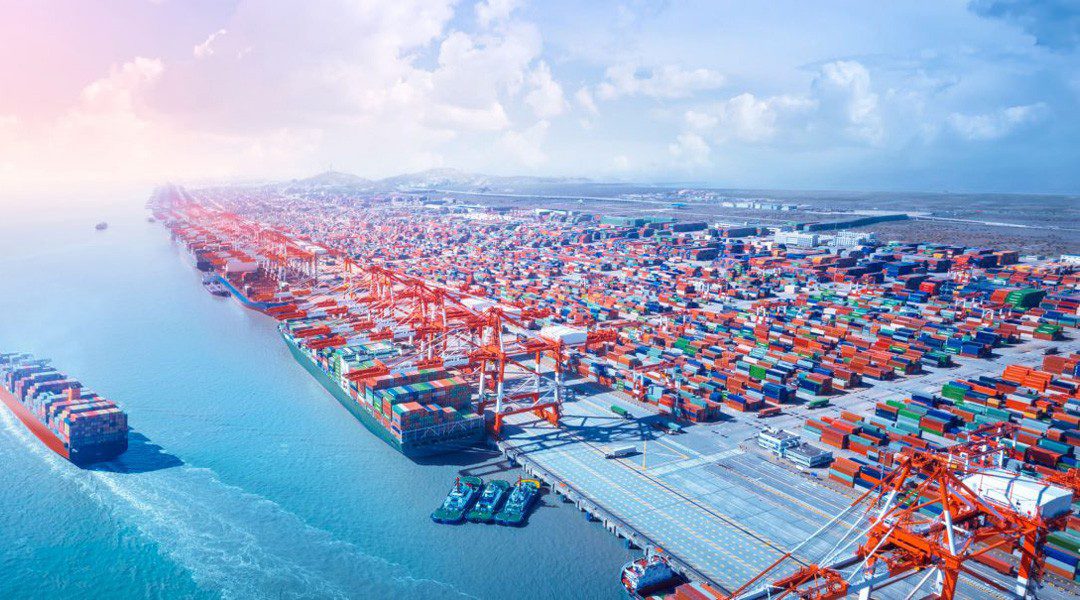 Analyst Insight:ESG principles have emerged as a major challenge for businesses globally as they evaluate howESG impacts their bottom line and risk exposure. In response, global enterprises are making significant investments in the people, software and data that will help them measure and track progress, and a single solution is helping companies successfully meet this challenge: supply chain traceability.
Analyst Insight:ESG principles have emerged as a major challenge for businesses globally as they evaluate howESG impacts their bottom line and risk exposure. In response, global enterprises are making significant investments in the people, software and data that will help them measure and track progress, and a single solution is helping companies successfully meet this challenge: supply chain traceability.
Supply chain traceability is the only means by which companies can simultaneously address supply chain risk, compliance and sustainability. This makes it an invaluable tool for organizations—particularly those in the retail and apparel industries—as they seek to prioritize ESG commitments.
The demand for supply chain traceability is skyrocketing, driven by a confluence of consumer demand, regulatory pressure, and investor expectations. To achieve ESG goals, businesses need data they can trust to comply with regulations, ensure supply chain resilience, and engage with their customers on real and measurable sustainability achievements.
Expectations of Transparency
In an era marked by increasing environmental awareness and social consciousness, it’s younger consumers who have bolstered demands for transparency from the brands they purchase. This is a particularly acute challenge for retailers and fashion brands, whose consumers are fatigued by greenwashing and unproven claims. Recent research shows that72% of customersrequire sustainable fashion claims to be substantiated by real, quantifiable efforts from brands.
There’s growing awareness of the fashion industry’s environmental footprint and its often-problematic labor practices, but retail and apparel aren’t the only industries that require a transformation. Banks and other financial service organizations are experiencing asimilar revolution, as are the grocery and agriculture industries.
The rise of social media and digital platforms has also amplified consumer voices, enabling them to share information, mobilize and call out brands for unethical practices more effectively than ever before. In response, companies that prioritize traceability and demonstrate a commitment to ethical practices can significantly enhance their brand reputation, customer loyalty and, ultimately, their market share. Conversely, those that fail to address these concerns risk a tarnished brand image and corresponding financial losses from consumers turning away.
Governments around the world are responding to the call for greater corporate responsibility with legislation that mandates traceability and accountability in supply chains. The result is a complex web of international regulations for organizations to keep in mind. Laws like the Corporate Sustainability Due Diligence Directive, German Supply Chain Due Diligence Act, and the Canadian Environment and Climate Change law require companies to disclose supply chain data to help enforce responsible, ethical business operations.
Forced labor is of particularly high priority, as strict enforcement is already happening. In the U.S., March, 2024 marked the month with the highest value of goods withheld in Customs due to suspected association with forced labor, and this is only expected to increase throughout the year.
The European Union is also advancing regulations that obligate companies to conduct due diligence on their supply chains to address environmental harm and human rights abuses. Emphasizing the immediate need for regulatory action and compliance to control the risk of forced labor, the EU recently passed a ban on products made with forced labor, set to go into effect in 2027.
These regulatory developments increasingly mandate supply chain traceability and risk management to ensure compliance. A focus on compliance—even better, proactive compliance—necessitates traceability systems that can monitor and document the provenance of items and the conditions under which they were produced, from raw materials to consumer-ready product.
Though many of these laws are still in their infancy and we have yet to experience the full consequences of failing to comply, it’s clear that business reputation, customer satisfaction and earnings will be at risk if companies fail to take new regulations seriously.
The Financial Rationale for Traceability
Investors are increasingly incorporating ESG criteria into their investment decisions. There’s a growing recognition that companies with sustainable and ethical practices are better positioned for long-term success, as they are less likely to face regulatory penalties and costly supply chain disruptions.
Furthermore, a recent PWC study showed that nearlyone-third of chief financial officersare examining the potential effects of various climate change scenarios on financial performance and making changes to hedge against risk.
Companies that can provide clear evidence of sustainable and ethical practices are more likely to attract investment. Moreover, they can potentially see a reduction in costs over time through more efficient use of resources, and a more stable supply chain that’s less susceptible to disruptions.
The Path Forward
Achieving supply chain traceability requires significant investment in technology and process redesign. Technologies such as blockchain, artificial intelligence and the internet of things are proving instrumental in enabling greater visibility and accountability. With the proper tools, businesses can build strong supply chain data foundations, streamline traceability, digitize their supply chains, and maximize ROI on traceability investments.
Technology, however, is just one piece of the puzzle. Building a traceable supply chain also demands close collaboration with suppliers, rigorous audits and a commitment to continuous improvement. It requires a shift in mindset from viewing traceability as a compliance cost to seeing it as an investment in the future of business.





